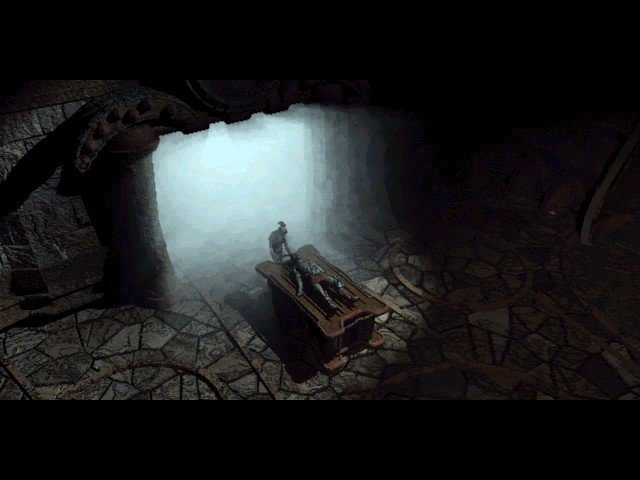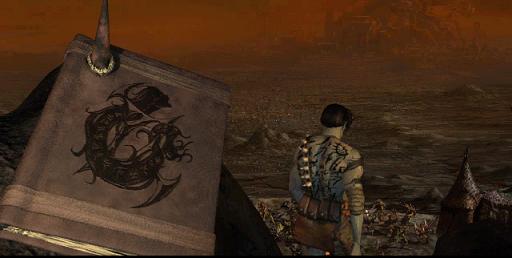It’s not often that you can find a piece of media – especially a video-game – that can hold its strength to a novel, or is as strong as a novel. Perhaps not just a novel, but an ancient text, a manuscript or tablet from a lost civilisation (think the Epic of Gilgamesh, or the Emerald Tablets of Thoth). This is exactly what Planescape represents, and in all of its thoroughness and depth, it challenges and intrigues beyond the common purpose of conventional gaming. This common purpose is, of course, to entertain and engage. So, what happens when the common purpose is re-focused through the lenses of imagination and philosophy?

Heinrich Khunrath, 1606.
Planescape: Torment is what happens – and it happens in over 800,000 words of dialogue*. This is a game that is heavily concerned with existence, more than any other ever made. Starting with the concept of a tabula rasa; that is, the ‘blank state’ , it directly parallels one of the greats of philosophy, Aristotle. The Aristotelian connection appears with he game’s heavy focus on the soul and essence. But to take away from philosophy, and to reinstate this metaphor, the game allows all of us to think about beginnings and endings in life with its take on reincarnation and immortality as defects of an idealistic, death-conquering society, somewhat afraid of the unknown and what may have come before this life and what lies after it. It comes with such freshness and mystery that it drives you to be reflective.
Death is seen as an asset and also an encumbrance. The game plays with traditional fears in video games about trying to stay alive while killing almost everything imaginable, to trying to understand the purpose of death in a world that is more than what it seems. But, the more you do die (and it happens a lot) the more of an impact it has on your memory and sense of self, both present and past. Taken literally, it is a compelling analogy to age and natural organism decline. Everything alive experiences it and cannot escape it. What interests me is the facility the game creates and directs over you to question what if there was a before, something before all of this, but it has been forgotten with this life, and is now inaccessible directly because of the paradox of ending and beginning?

If we start out as blank states from birth, with a dimension of possibilities that we can inscribe to formulate our own lives and therefore sense of “reality”, can we then become more questioning about how we got here, why we are here and what our purpose is? What can change the nature of a man? is the game’s tagline, its never-ending circle. The protagonist then has a fairly apt name, “The nameless one”, which parallels the strata we all begin with before becoming individualised by a place, a family, a name, a set of rules and so on. But the game redirects this question upon us, the player, as we embody the character undergoing this journey to discover not only what we were, but who we may become.
And in playing with the very foundations that make us all know what we are (our memories) and the very thing that allows us to chart our path (choices and consequences, or action and reaction) we are presented with a very potent source of entertainment. The game allows us to reconsider the very entanglements of everyday life into something huge, something universal in scope and turns traditional entertainment on its head with a very, very special gift. It forces listening and questioning, rather than fight and flight situations and settles itself into a realm that merges the best unique vision gaming has ever seen.

p.s – I’ve not actually completed the game, and these thoughts were rather collected from my own memory of playing it. Let me know if you have any thoughts on the nature of questions the game deals with.
* Also, I’m not entirely sure on the exact number of words throughout the dialogue and conversations in the game.